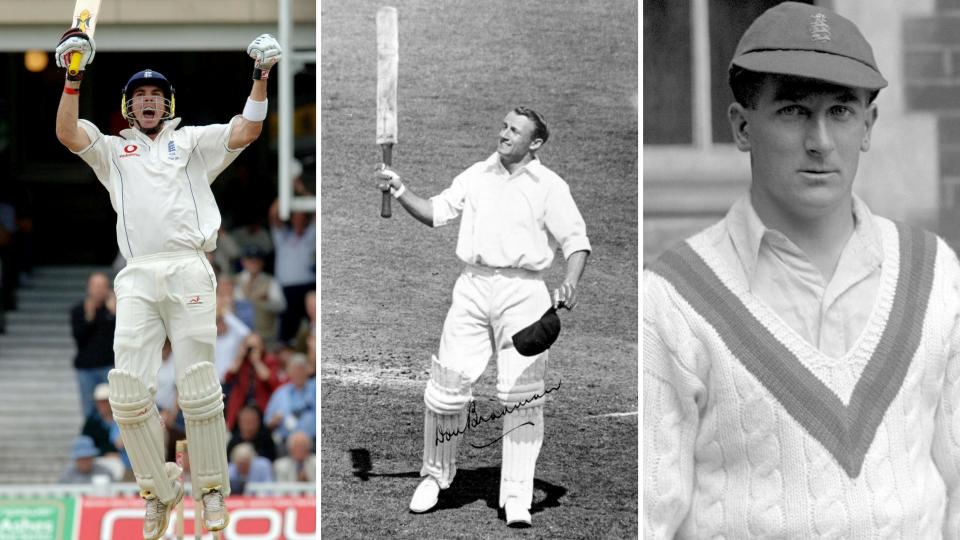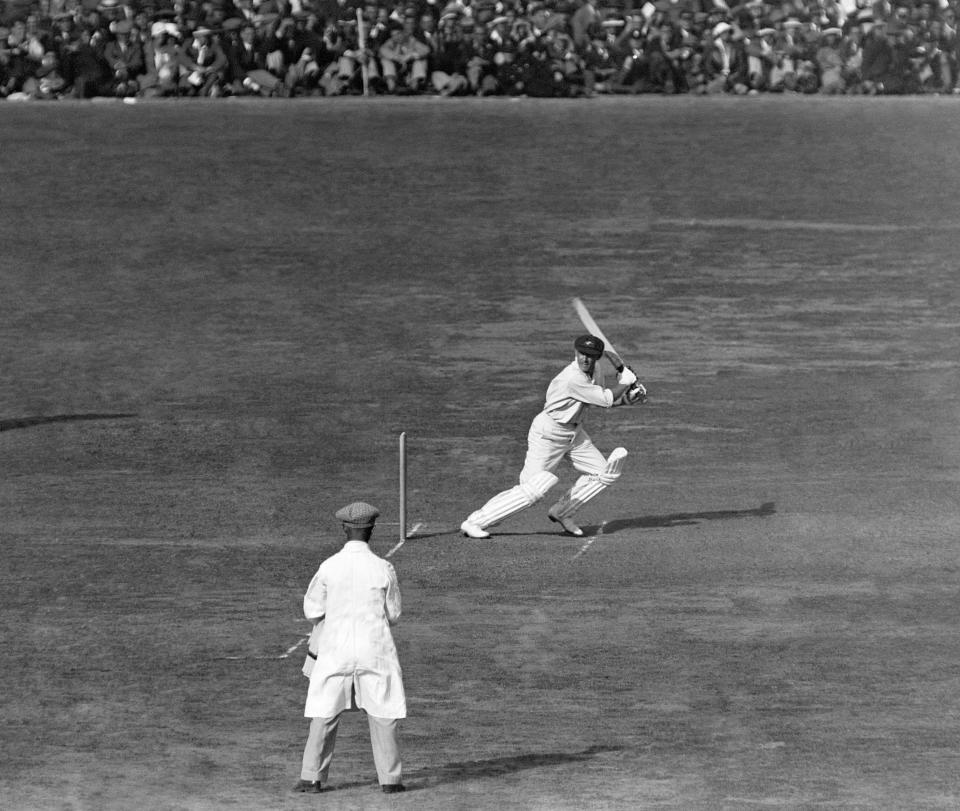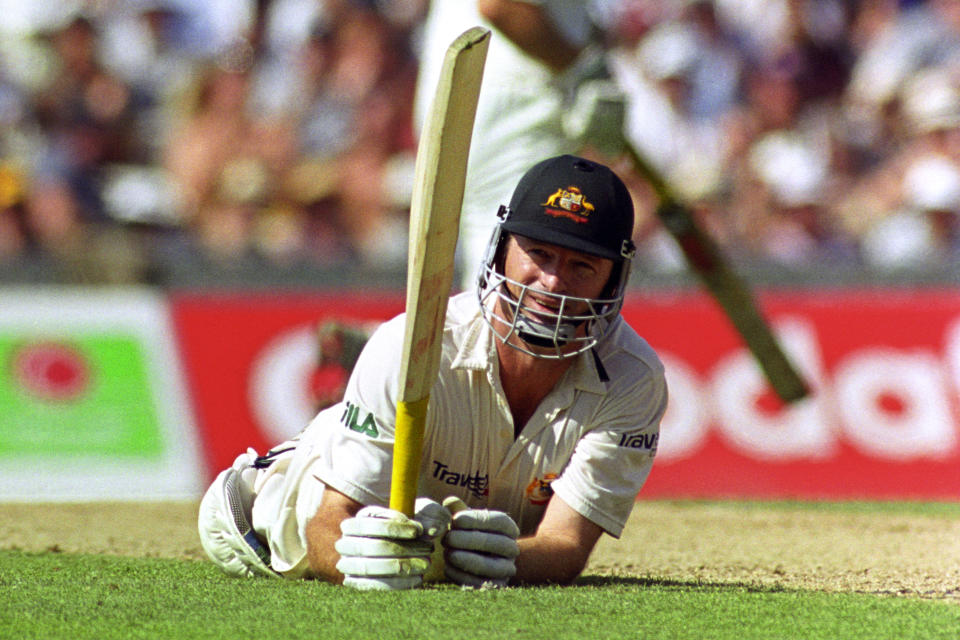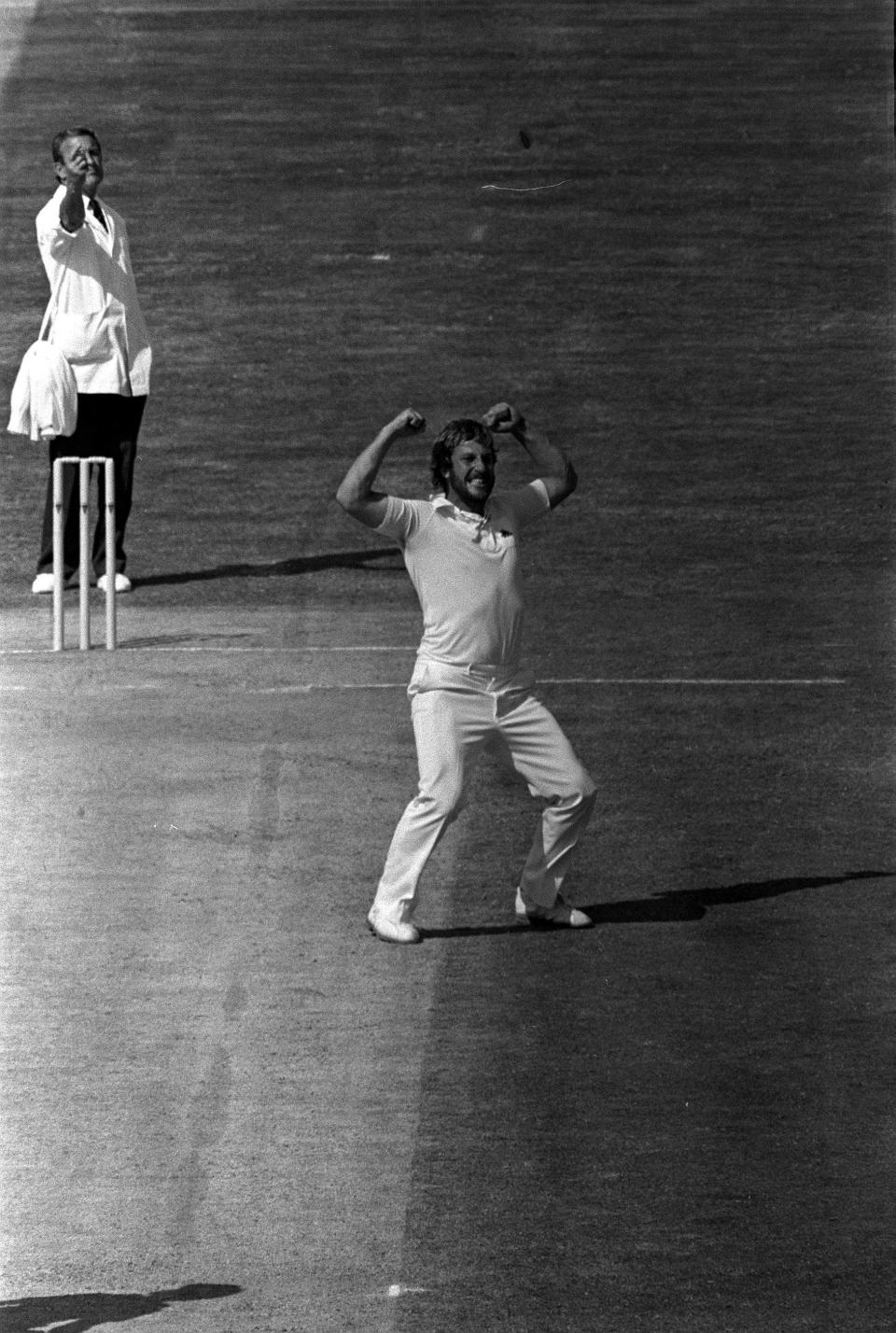The best Ashes XI of all time: Who's in, who's out?

Selection can be tricky at the best of times but trying to pick an all-time best Ashes XI is almost impossible. The team you see below would be a match for anyone. Yet despite the undeniable claims of greats such as Don Bradman, Shane Warne and Ian Botham, other picks were less straightforward.
Alas, the likes of Andrew Flintoff, who bestrode England’s triumphant 2005 series, Allan Border, one of Australia’s greatest batsmen and captains, and Mitchell Johnson, who dominated the last series Down Under four years ago with 37 wickets, miss out.
Others unlucky not to make the cut include English greats Jim Laker, Wally Hammond and Len Hutton as well as Australians Ricky Ponting, Victor Trumper and Keith Miller. It wasn’t easy but here’s my XI…
Arthur Morris (Australia)
Ashes Tests: 24; Runs: 2080; Average: 50.73.
This elegant left-handed opener scored three successive hundreds in his first series against England in 1946-47. It was a sign of things to come for a player who made eight of his 12 Test centuries in Ashes contests. On Australia’s unbeaten 1948 Ashes tour of England, Morris outscored even Don Bradman, making 696 runs at an average of 87. He also made his highest Test score of 206 against England at Adelaide in 1951.
READ MORE: The GREATEST Ashes icons of all time
READ MORE: The WORST Ashes XI of all time
READ MORE: Geraint Jones on The Ashes, abuse from Australian fans and THAT catch in 2005
READ MORE: Voices of Sport – the best Ashes commentary moments ever
Jack Hobbs (England)
Ashes Tests: 41; Runs: 3636; Average: 54.26.
Known as ‘The Master’, Hobbs dominated Test attacks for the best part of three decades following his debut in 1908. His opening partnership with Herbert Sutcliffe is regarded as the finest the game has ever seen but Hobbs gets the nod because of the sheer weight of runs he scored against Australia. No Englishman has scored more than his 3636 in Ashes contests. He also made 12 centuries against Australia, with the last of those coming at Melbourne in 1929 when he was 46.

Don Bradman (Australia)
Ashes Tests: 37; Runs: 5028; Average: 89.78.
The greatest batsman of all-time, Bradman made his debut against England at Brisbane in 1928. Although ‘the Don’s’ Ashes average is lower than his famed career mark of 99.94, it is still higher than any other batsman’s in the history of the game. Bradman is also the only man to score two Ashes triple centuries – both at Headingley in 1930 and 1934. Despite the fact a second-ball duck in his final Test at The Oval in 1948 denied him an overall average of 100, Bradman still ended that series – and his career – on a high as he captained ‘The Invincibles’ to an unbeaten tour of England.
READ MORE: Lamb wants Moeen or Bairstow to bat at five
Kevin Pietersen (England)
Ashes Tests: 27; Runs: 2158; Average: 44.95.
Despite the off-field controversies that plagued his England career, Pietersen’s contributions in Ashes contests mark him down as an all-time great. His debut series in 2005 will forever be remembered for the majestic innings of 158 at The Oval that secured the draw that saw England regain the urn after an 18-year wait. Pietersen played a key role in England’s run of three wins in the four Ashes series that followed, including a first victory in Australia for 24 years in 2010-11.
Steve Waugh (Australia, captain)
Ashes Tests: 46; Runs: 3200; Average: 58.18.
A great captain, tough competitor and brilliant batsman. In terms of Australians who scored 2000-plus Ashes runs, only Bradman has a higher average. After Australia slipped to defeat in his first Ashes series in 1986-87, Waugh dominated the next one in 1989, scoring 506 runs at an average of 126.50. He did something similar on Australia’s next tour in 1993 and overall averaged 74.22 in 22 Tests in England. Fittingly he finished his Ashes career in 2003 with a century at the SCG, his home ground.

Adam Gilchrist (Australia, wicketkeeper)
Ashes Tests: 20; Runs: 1083; Average: 45.12; Catches 89; Stumpings 7.
Endured a tough time with the bat in 2005 at the hands of Andrew Flintoff but came back spectacularly with a sensational 57-ball hundred at Perth a year later. Gilchrist redefined the role of the batsman-keeper in the modern era and is still regarded as the best there has ever been. After scoring 152 from 143 balls on his Ashes debut at Headingley in 2001, he won three of his four series against England and ended his career with an average of 47.60 as well as 416 dismissals with the gloves.
Ian Botham (England)
Ashes Tests: 36; Runs: 1673; Average: 29.35; Wickets: 148; Average: 27.65.
It’s fair to say the all-rounder saved his best for the Australians. No Englishman has more series wins against them than Botham’s five. But it is the 1981 series – when he rescued England from the dead with a brilliant counter-attacking century at Headingley – that was his finest hour. He had started that summer as captain but resigned before that third Test in Leeds. England won against all the odds after being forced to follow on thanks to the inspiration Botham’s brilliant unbeaten 149 from 148 balls gave them. He ended the series with 399 runs and 34 wickets and went on to win two more Ashes series after that in 1985 and 1986-87 to add to his previous triumphs in 1977 and 1978-79.

Shane Warne (Australia)
Ashes Tests: 36; Wickets: 195; Average: 23.25.
Entered Ashes folklore when he bowled Mike Gatting with the ‘Ball of the Century” – his first delivery in Ashes cricket – during the opening Test of the 1993 series at Old Trafford. Warne did not stop there, taking a further 194 wickets against England and ending his career with one final flourish as he passed 700 Test wickets on his home ground of the MCG during Australia’s 5-0 whitewash of England in 2006-7. Lost just one of the eight Ashes series he played in but even then, in 2005, he was the leading wicket taker with 40 at 19.92.

Harold Larwood (England)
Ashes Tests: 15; Wickets: 64; Average: 29.87.
Nobody can verify just how quick Larwood was given he bowled in an age well before speed guns were invented. But we do know the Nottinghamshire bowler was rapid and it was this speed that made him England’s chief weapon on the infamous 1932-33 Bodyline tour. Bowling what England captain Douglas Jardine termed ‘leg theory’ – at the heads and bodies of the Australians – Larwood took 33 wickets at 19.51 to help his team win the series 4-1. But the diplomatic fall-out from Bodyline, including Larwood’s refusal to sign a letter of apology drawn up by the MCC, meant he never played for England again.
Dennis Lillee (Australia)
Ashes Tests: 29; Wickets: 167; Average: 21.
One of the most fearsome fast bowlers to have graced the game, Lillee’s feats in Ashes encounters were simply outstanding. He twice took more than 30 wickets during series in England – in 1972 and 1981. In the first of those, the Western Australian claimed a 10-wicket match haul at The Oval. Yet he would better that three times, taking 11 wickets at Melbourne in 1977 and 1980 as well as at The Oval in 1981. Bowling in tandem with Jeff Thomson, Lillee was almost unplayable at times.

Glenn McGrath (Australia)
Ashes Tests: 30; Wickets: 157; Average: 20.92.
The greatest seam bowler to have played the game, McGrath’s metronomic accuracy terrorised a generation of England batsmen.
Overall, he won six Ashes series between 1994 and 2006-07, losing only in 2005 when a freak ankle injury sustained tripping on a rugby ball during warm-ups saw him miss the decisive Tests England won at Edgbaston and Trent Bridge. Had he been fit throughout, the story of that momentous summer for English cricket may have been very different. McGrath’s final Test came on his home ground of the SCG during Australia’s 5-0 whitewash in the 2006-07 Ashes. It was a fitting end.

